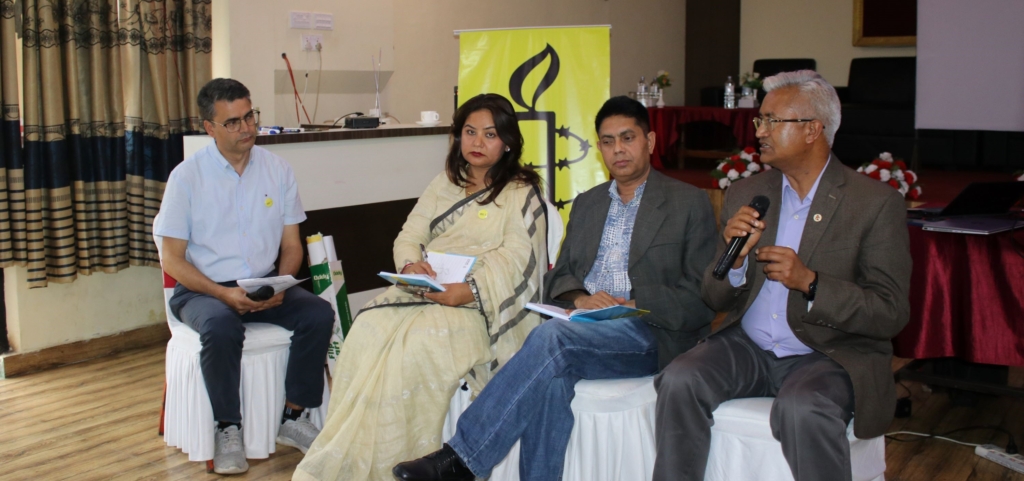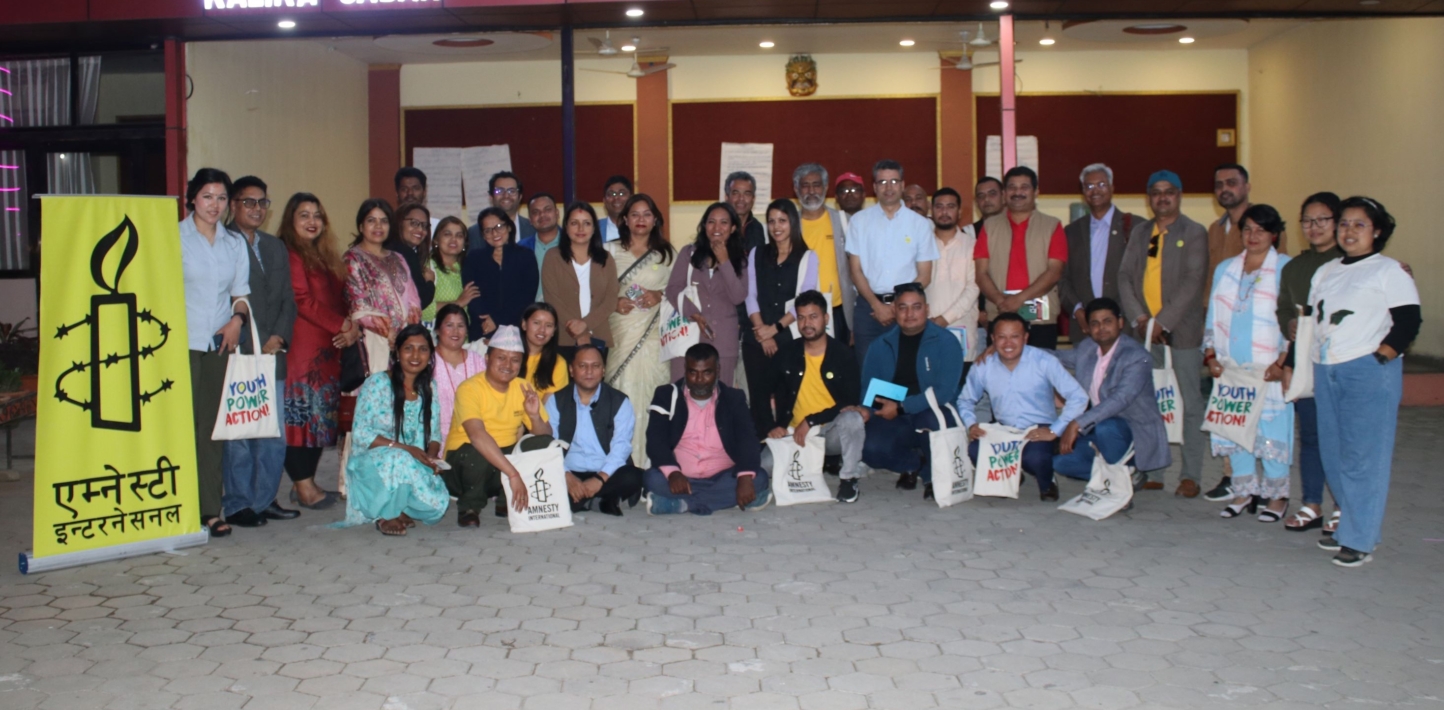In today’s age of rapid digitalisation, the role of media has expanded and evolved to encompass a multitude of functions that are instrumental in shaping the public imagination and discourse. In just the past few years in Nepal, the media sphere has seen rapid changes, with traditional media slowly being replaced with new forms of digital media platforms, including social media, online news outlets, blogs, vlogs, and podcasts. These platforms have altered the way information is being disseminated, consumed, and interacted with, and while they bring with them new opportunities, new challenges have also emerged – particularly in relation to human rights.
In this context, Amnesty International (AI) Nepal organised a two-day residential workshop for more than 60 journalists who came together from across the country to discuss and deliberate on how journalism should play a role in spreading awareness about pressing human rights concerns of the day including in the increasingly digitalizing present world. The workshop was held on 22 and 23 March in Gaindakot, Nawalpur, with sessions facilitated by different experts and practitioners in the journalism and human rights sectors.
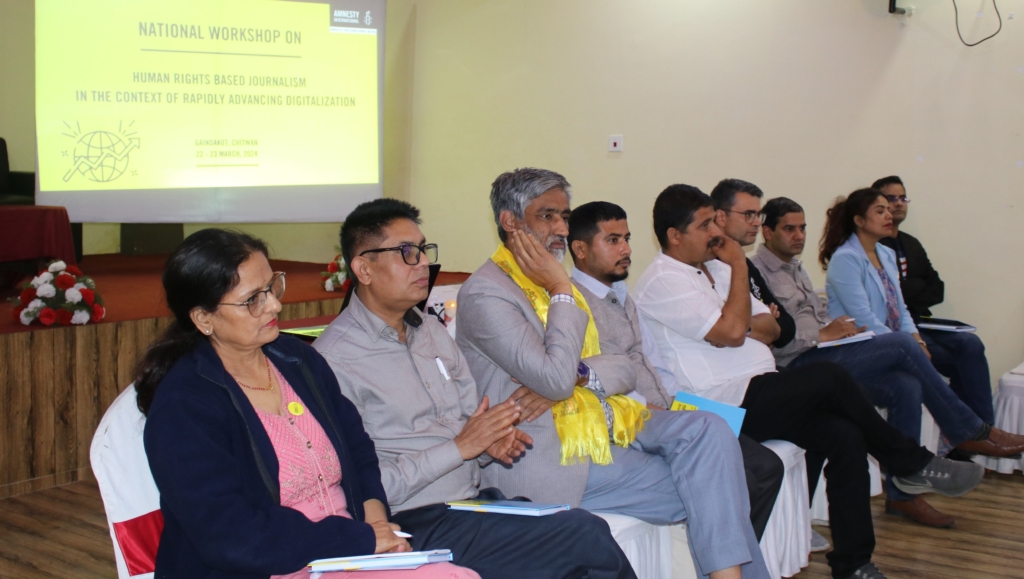
On the first day of the workshop, welcoming all participants, brief keynote speeches were delivered by AI Nepal Director Nirajan Thapaliya; Dharmendra Jha, senior journalist and Executive Chair of Rastriya Samachar Samiti; Bipul Pokharel, Chair of the Federation of Nepali Journalists (FNJ); journalist and former AI Nepal Chair Rajan Kuikel; Srijana Aryal, Secretary of the FNJ; Murari Prasad Kharel, Acting Secretary of the National Human Rights Commission; journalist Dilip Paudel; and AI Nepal’s Chair Bipin Budhathoki.
The first session of the workshop was conducted by AI Nepal Director Nirajan Thapaliya, who delivered a presentation entitled ‘Journalists as Human Rights Defenders’. The presentation touched on a range of issues, such as the role the media plays in the protection and promotion of human rights, the role of journalists as human rights defenders, the core human rights obligations on the states arising from international instruments, including the Universal Declaration of Human Rights, and other pressing human rights concerns in Nepal.
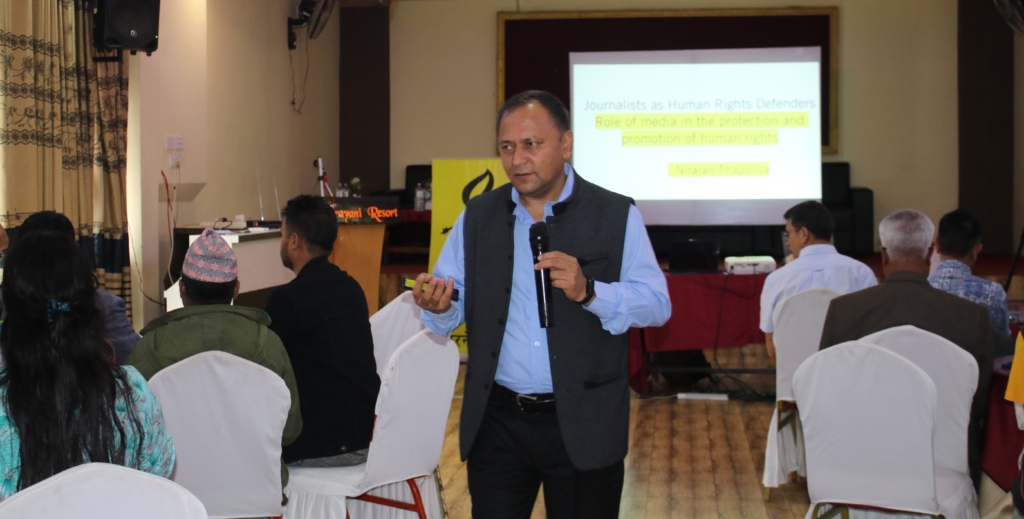
“The media plays a crucial role in exercising and promoting human rights by informing, mobilizing, advocating, and holding people and States accountable. Its role, as a human rights defender, is vital in creating a society that values and upholds the principles of human rights,” said Thapaliya. He also spoke briefly on the current campaigns AI Nepal is running, including a quick presentation on Amnesty’s ongoing global flagship campaign ‘Right to Protest’ contextualizing it with the governments’ restrictions civil liberties and the rise of authoritarianism, including compromises in civic space in Nepal such as through the blanket prohibitions to protest in various historical protest spaces within Kathmandu Valley and the police’s unlawful, unwarranted and excessive use of forces in the protests.
Following his presentation was a session by Dharmendra Jha, Executive Chair of Rastriya Samachar Samiti. Jha’s session was on ‘Human Rights Journalism in Democracy and Federalism’ with a quick overview on the differences, opportunities, and challenges of professional journalism v/s citizen journalism.
“In today’s digitalized society, the Nepali media is confronted by challenges of new media and citizen journalism, along with a financial crunch, but we have to remind ourselves of the crucial role we have, as journalists, to shape narratives, speak on behalf of the people and question the authorities,” said Jha. His session also focused on how the role of a journalist has evolved in recent decades with political changes and how journalists need to safeguard the role of press to ensure the spirit of democracy.
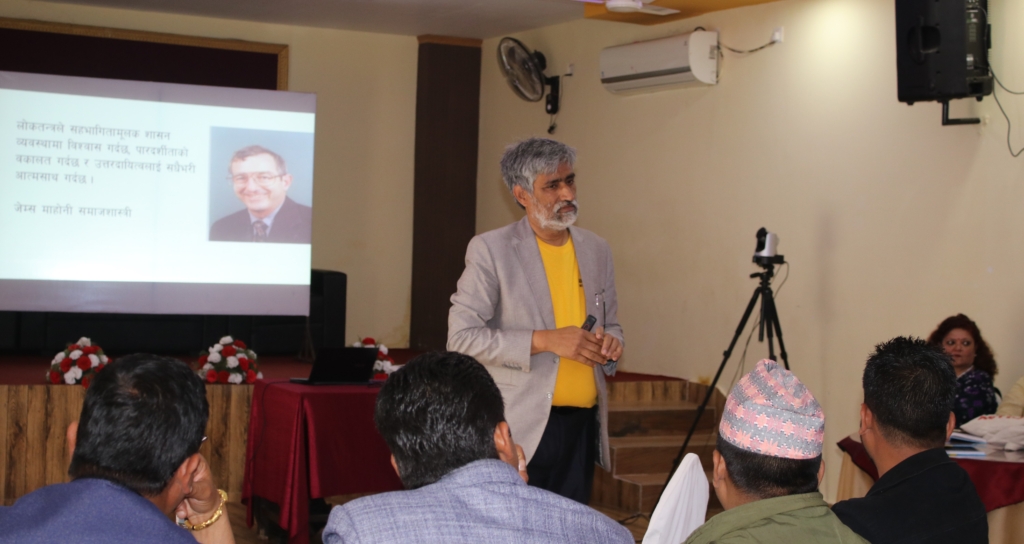
To instill in participating journalists a more gender-sensitive approach in their reportage, a session was conducted by Babita Basnet, editor of Ghatana Ra Bichar and the Executive Director of Media Advocacy Group. Her session touched on the nuances of language that is inclusive and respectful of all genders; on how to sensitively report on gender-based issues, such as gender-based violence; on how to challenge gender roles in reporting and in the newsroom, etc.
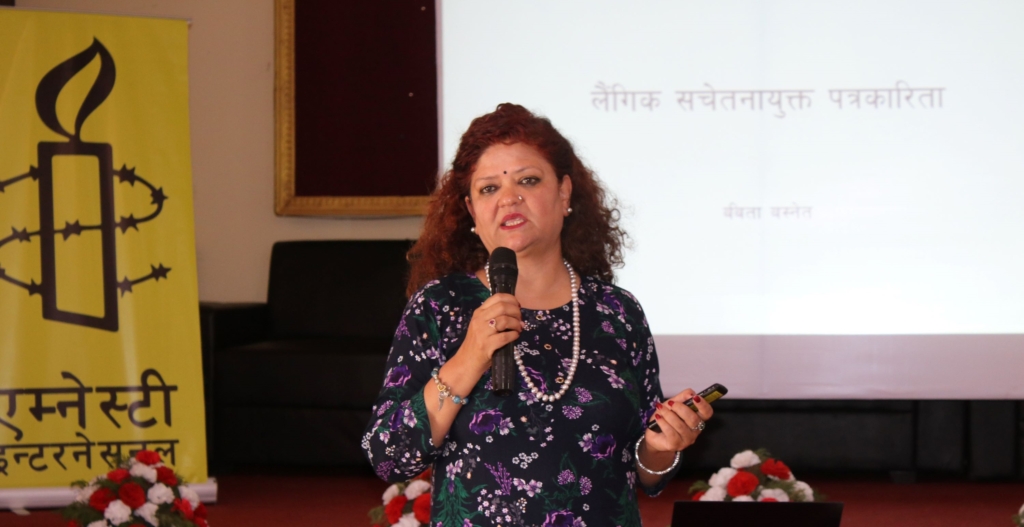
Lal Bahadur Airi, General Manager of Gorkhapatra Corporation, then spoke on the theme ‘Human Rights Perspective in Media Policy’, shedding light on how there is a lack of policies to protect and promote journalism in Nepal and a decreasing level of drive among journalists to do good work. Following that, Bipul Pokharel, President of Federation of Nepali Journalists, spoke on the shrinking space for ‘Freedom of Opinion, Freedom of Expression and Civic Space’ in Nepal’s current context.

The final presentation of the workshop was led by journalist Rajneesh Bhandari, who spoke on ‘Human Rights in the Digital Era’, touching on a range of topics, such as digital safety, privacy, and data protection for journalists in this digital era. He also spoke about the many ways digitalisation can be used to further strengthen one’s journalism with the help of AI (artificial intelligence) and different emerging applications.
Amidst these opportunities, however, he also spoke about the challenges, such as the spread of misinformation, algorithmic biases, and privacy concern, highlighting the need for responsible journalism, media literacy, and ethical practices in the digital sphere – particularly in the context of human rights.
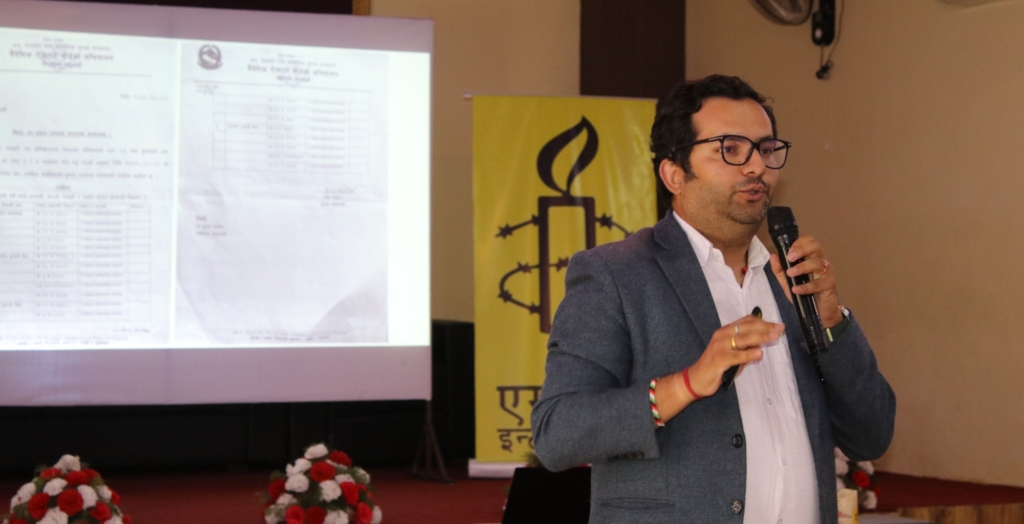
This was followed by some group work, where journalists were divided into groups to discuss the opportunities and challenges that exist in Nepal’s current political and social context to report on human rights issues.

The workshop was then wrapped up with a panel discussion on ‘Security and Protection Concerns for Journalists in the Age of Digital Development’, which was facilitated by Rajan Kuikel, journalist and former chairperson of AI Nepal. The panelists included Shobhakar Budhathoki, senior human rights activist; Murari Prasad Kharel, Acting Secretary of the National Human Rights Commission; and Bimala Bhandari, Kaski Chapter president of Federation of Nepali Journalists.
Speaking on the topic, Shobhakar Budhathoki said, “We must evolve with changing times and make optimum use of evolving technology to our benefit. But when it comes to the digital world infringing on our human rights, such as freedom of expression, right to privacy and freedom of assembly, then we must take a stand as human rights defenders and journalists.”
Kharel, focusing on safety and security concerns of digital information, said: “We need to implement policies that differentiate the public’s right to information while protecting a person’s right to privacy.”
Putting forth concerns of journalists, Bimala Bhandari, Kaski chapter president of Federation of Nepali Journalists, said, “The digital age has redefined, in many ways, journalism for us. And while it poses many challenges, it also gives us a lot of opportunity for growth. But there is a need for e-governance to strengthen digital journalism and a deep need for digital literacy.”
